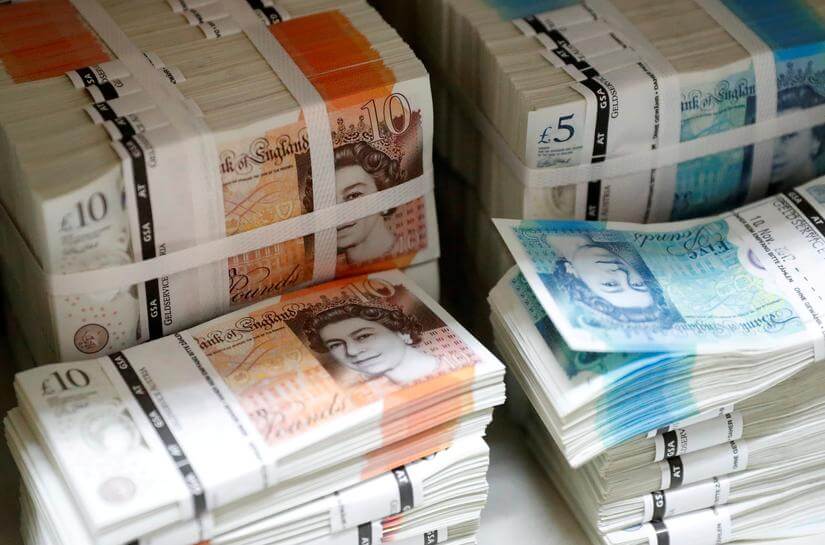
The Pound Falls Against the Dollar and Euro, Despite Brexit Tensions
The pound fell against the dollar and euro, pausing its recent upward trend, in a move analysts said was likely to be a temporary retracement as the market remained generally bullish on sterling due to Britain’s quick vaccine rollout.
Sterling has gained around 1.6% so far this year against the dollar and 4% versus the euro.
Analysts say that, while the move in cable is more dollar-driven, the strengthening against the euro is largely due to Britain’s success in rolling out Covid-19 vaccines, as well as relief that a last-minute Brexit trade deal was reached at the end of 2020.
The Bank of England kept its interest rates and 895-billion-pound bond-buying programme unchanged, as expected. It said that Britain’s economic recovery was gathering pace but policymakers were split over the prospects for longer-term improvement.
The pound slipped, falling to a three-day low against the dollar. At 1633 GMT, it was down around 0.4% at $1.3876, set for a net weekly loss of 0.7%.
Versus the euro, it was down around 0.3% at 85.79 pence per euro but still set for a small gain on the week overall.
Ned Rumpeltin, head of European currency strategy at TD Securities, said that sterling was likely to continue strengthening against the euro due to Britain’s success indelivering vaccines.
“We would not be surprised to see euro-sterling trendtowards the 82, 83 level,” Rumpeltin said.
But he also said that long sterling trade is “a little bit overcrowded”, meaning that the currency could be sensitive to negative news relating to the vaccine supply.
Earlier in the week, Britain said there would be a significant reduction in the amount of Covid-19 vaccine doses available at the end of this month due to a cut in manufacturing supply.
The European Union has threatened to ban exports of Covid-19 vaccines to the UK to safeguard scarce doses for its own citizens.
Tensions relating to Brexit also pose a downside risk to the pound. The European Parliament abandoned its plan to set a date for voting on the EU-UK trade deal, in protest at what the EU sees as Britain’s unlawful changes to Northern Irish Brexit arrangements.
Anger in Northern Ireland’s unionist community over the implementation of the Brexit divorce deal could undermine stability, Britain’s Northern Ireland secretary said.

